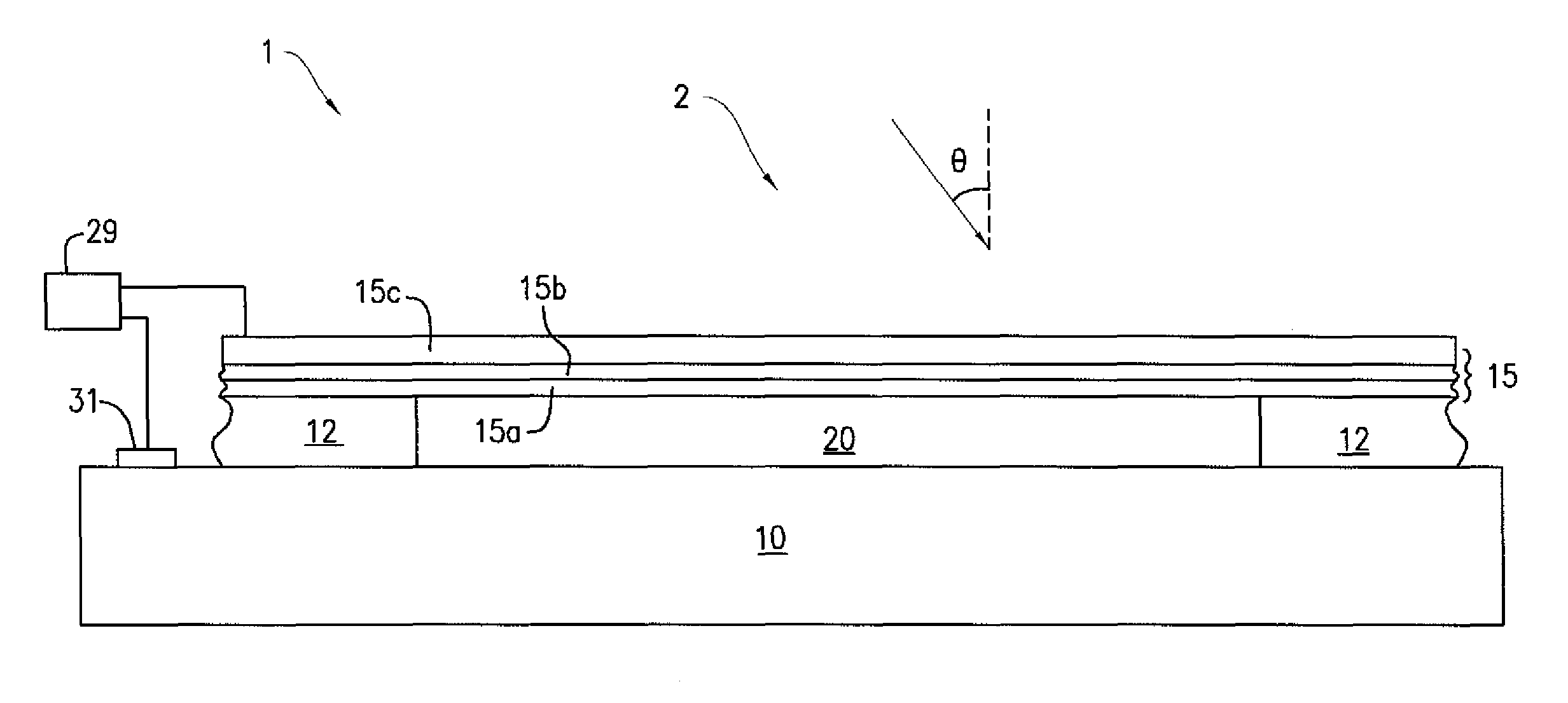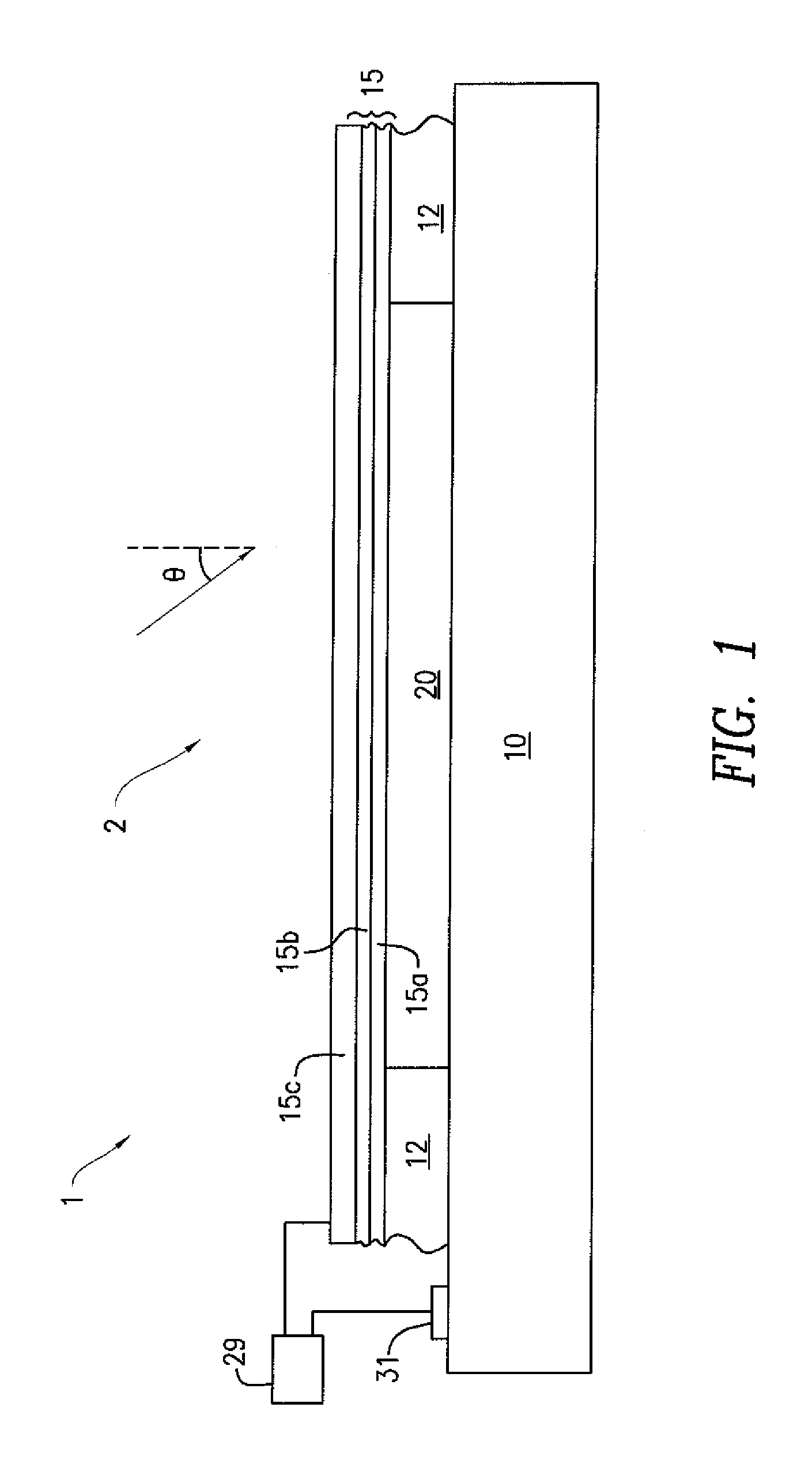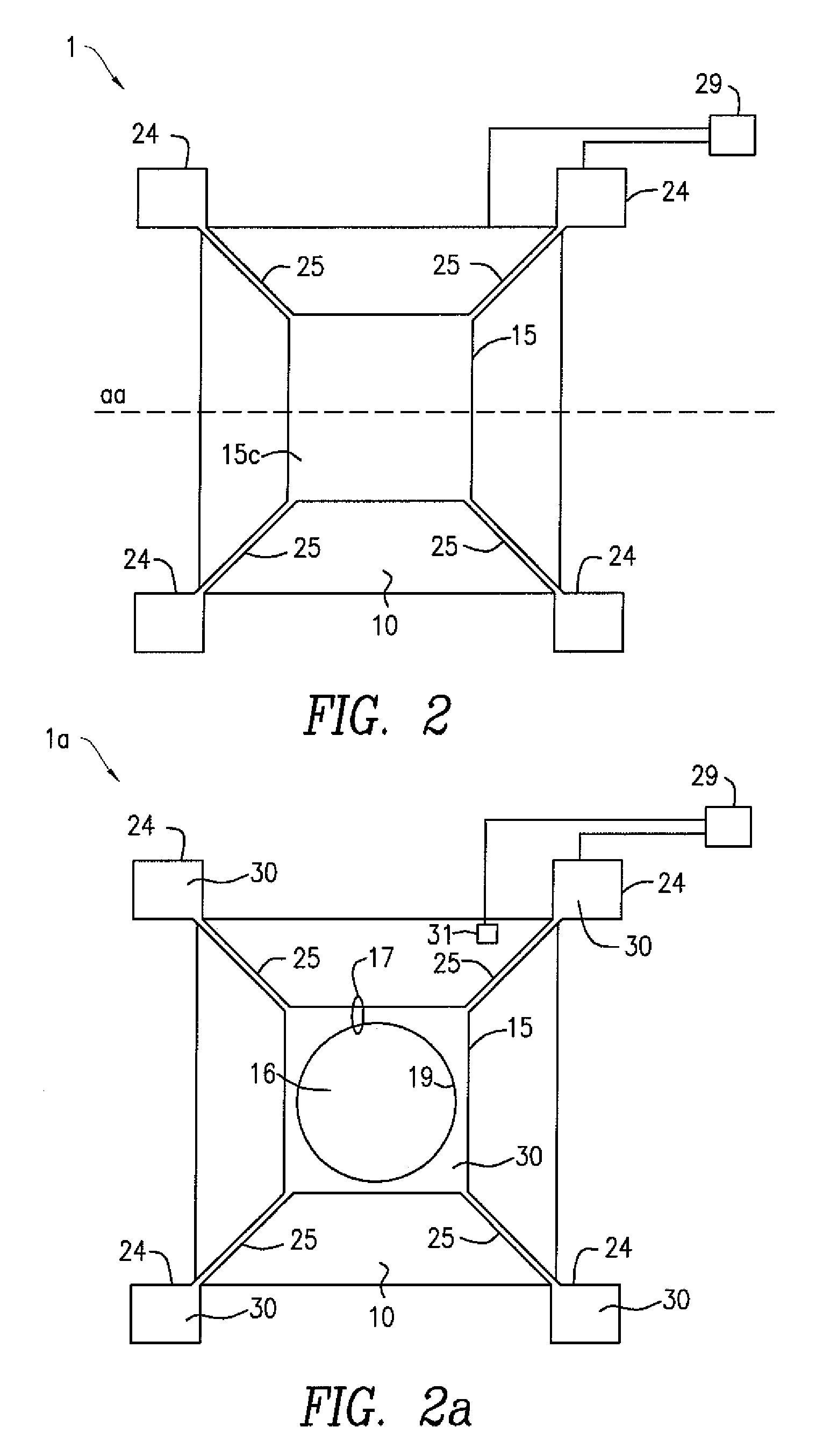Mechanically-active anti-reflection switch (MARS) modulator with wide angle tolerance
a modulator and wide angle technology, applied in the field of optical modulators, can solve the problems of diffraction, the deformation grating optical modulator described in solgaard et al., and the limited optical bandwidth of the optical resonator based modulator,
- Summary
- Abstract
- Description
- Claims
- Application Information
AI Technical Summary
Benefits of technology
Problems solved by technology
Method used
Image
Examples
Embodiment Construction
[0040]The present invention provides an apparatus for modulating an optical signal, and a method for its fabrication. The apparatus, which may be formed on a semiconductor wafer or chip, comprises a membrane and a substrate spaced to form an air gap. The membrane consists of three or more layers suspended over the substrate by support arms. There is a specific relationship between the refractive indices of the membrane layers and the refractive index of the substrate, and the membrane layers have specific thickness. A bias voltage is applied to the membrane and the substrate to generate an electrostatic force to move the membrane towards the substrate.
[0041]When the air gap is in the unbiased state, the membrane and air gap function as a high reflectivity coating. When the air gap is in the biased state, the membrane and air gap function as an anti-reflection coating. The membrane's change in reflectivity facilitates modulating the optical signal. In a preferred embodiment, the memb...
PUM
 Login to View More
Login to View More Abstract
Description
Claims
Application Information
 Login to View More
Login to View More - R&D
- Intellectual Property
- Life Sciences
- Materials
- Tech Scout
- Unparalleled Data Quality
- Higher Quality Content
- 60% Fewer Hallucinations
Browse by: Latest US Patents, China's latest patents, Technical Efficacy Thesaurus, Application Domain, Technology Topic, Popular Technical Reports.
© 2025 PatSnap. All rights reserved.Legal|Privacy policy|Modern Slavery Act Transparency Statement|Sitemap|About US| Contact US: help@patsnap.com



